Welcoming Message History and Mission Programmes Location Organization Notice
Events - Seminar - Workshop - Forum - Expert Meeting - Capacity-Building
Research Publications Competition Policy Trends Family Database in the Asia-Pacfic Region Links
Workshop 2024-09-25~2024-09-27
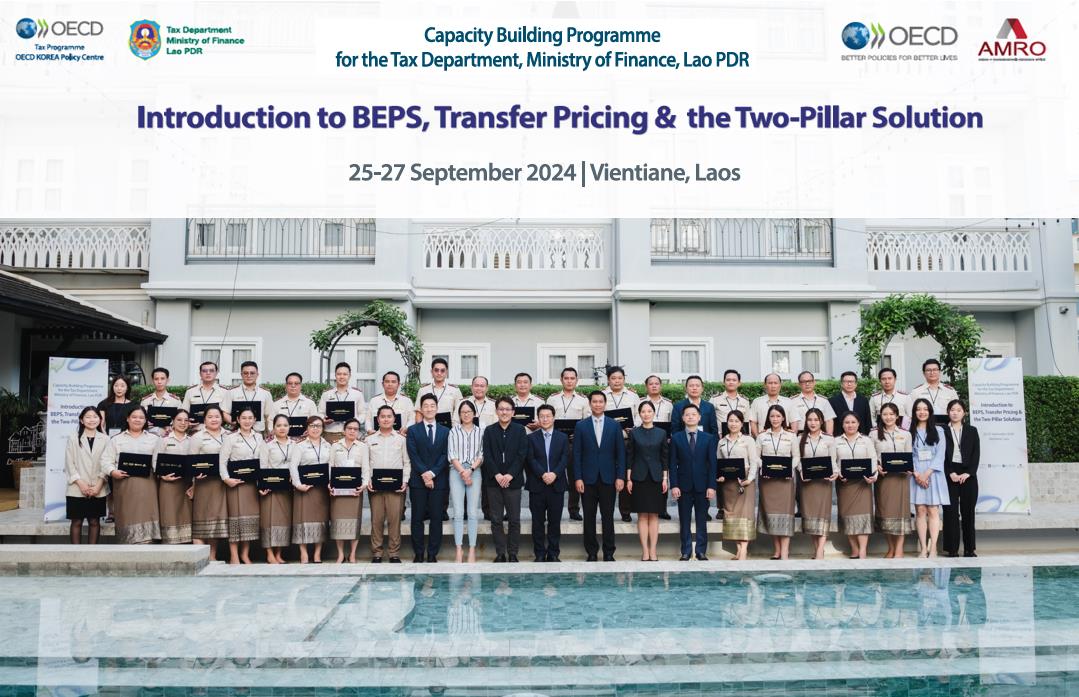
The Tax Programme of the OECD Korea Policy Centre(KTC) organized the second session of the Capacity Building Program for the Lao PDR on “Base Erosion and Profit Shifting (BEPS), Transfer Pricing and Two-Pillars Solution” from Wednesday, September 25 to Friday, September 27, 2024 in Vientiane, Lao PDR. The first session of the program was held in 2023 under the theme of “Revenue Forecasting and VAT Capacity Building Program” and, the second session was organized in cooperation with the OECD and the ASEAN+3 Macroeconomic Research Office (AMRO).
The programme was attended by 32 tax officials from the Lao Revenue Department attended, and 3 exerts including Ms. Kaidi Liu from the OECD, and Korean experts, Mr. Ilhwan Choi from Chungjung Tax and Accounting Firm and Ms. Soojin Lee from Kim & Chang Law Firm engaged as instructors. The participants showed great interest during the three-day program, actively interacting with the speakers and passionately participating in the discussion. The workshop mainly addresed the BEPS Minimum Standards, Transfer Pricing and the Two-Pillar Solution, and examined the fundamentals and basic concepts of the BEPS.
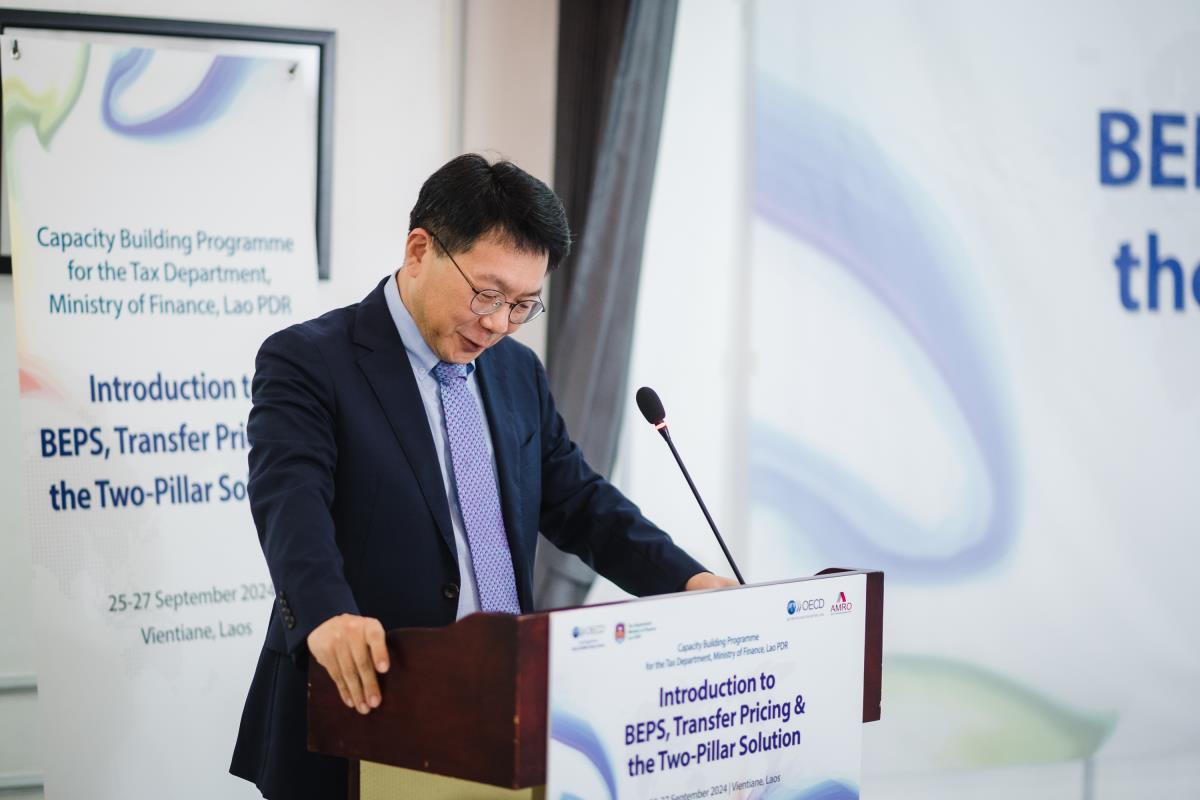
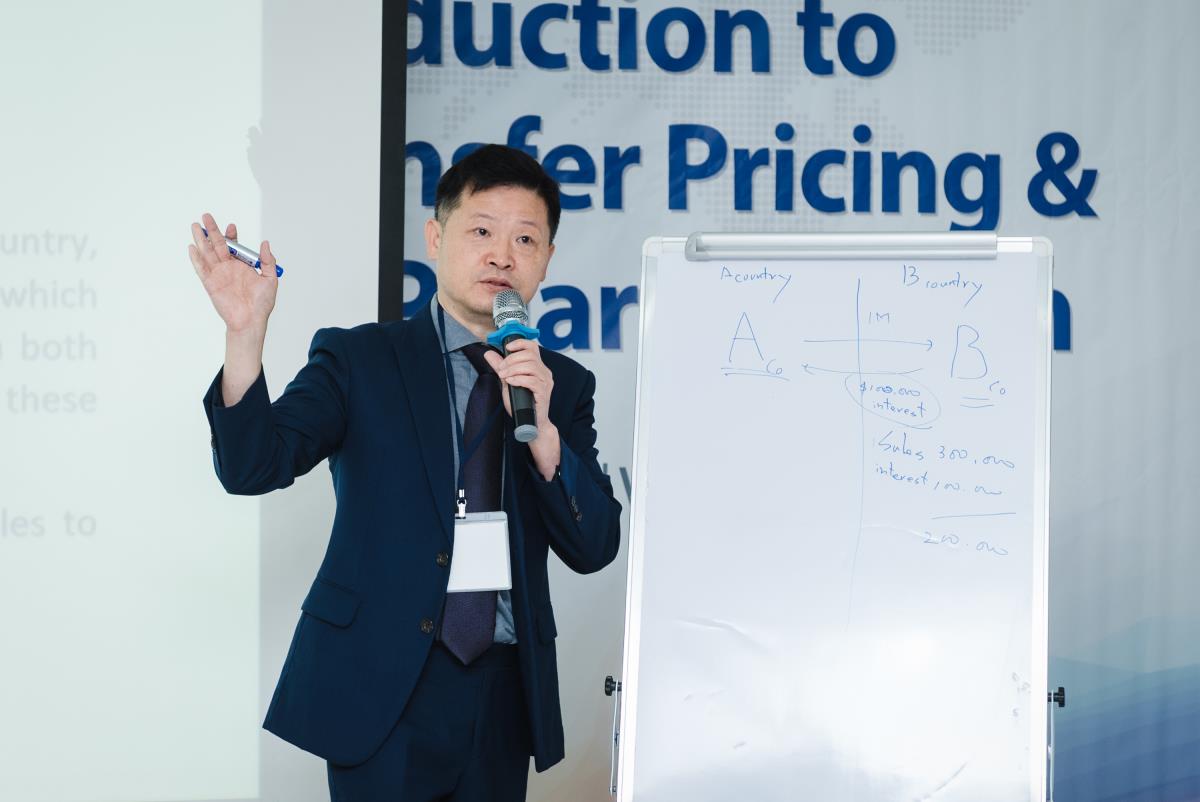
On Day 1, Mr. Ilhwoan Choi explained basic concept of the BEPS. BEPS, which refers to the exploitation of differences in tax rules or tax laws between countries by multinational corporations to reduce their tax burden, is one of the key challenges in today's global economy. He stated that BEPS has a large international impact and the OECD and G20 recognized the urgency of the issue and sought the method to solve the issue. Then, he moved to the BEPS minimum standards, which are Action 5, 6, 13, 14. Action 5 is aimed at preventing harmful taxation and ensuring level tax playing field to protect tax revenues from jurisdictions that exempt or charge less taxes, Action 6 is aimed at preventing abuse of tax treaties, Action 13 is aimed at ensuring transparency by requiring companies to submit reports on a country-by-country basis, and Action 14 is aimed at amicable settlement of disputes through mutual agreement between treaty countries.
Ms. Kaidi Liu gave an introduction to the OECD/G20's Inclusive Framework, introducing the history of BEPS solutions. She also introduced the OECD's role achievements in international taxation matters and outlined the activities the organization took to enhance tax transparency.
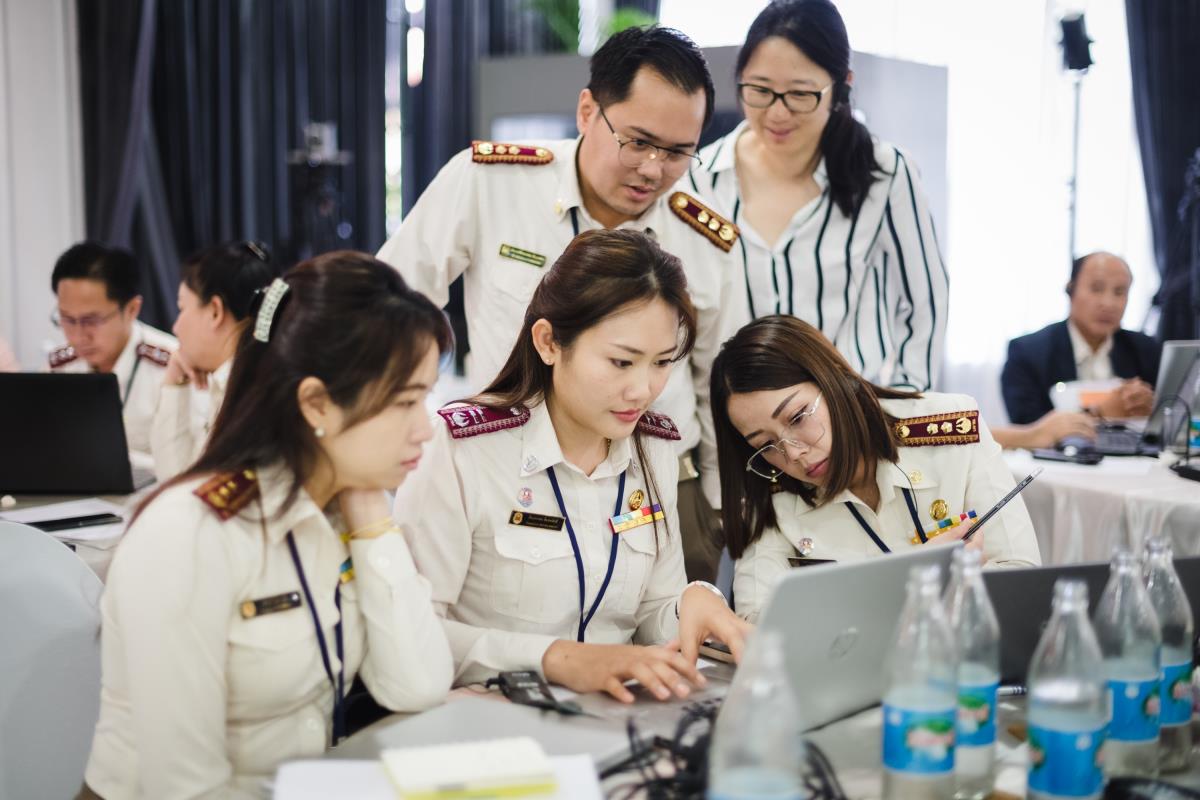

On Day 2, Ms. Kaidi Liu explained the main concepts related to transfer pricing, the need to establish an appropriate system, and how to implement the rule in reality. She then explained the latest developments in relation to risk: analysis the key factors in accurately identifying actual transactions and calculating arm's length, and mentioned risk analysis models and examples. Mr. Ilhwoan Choi explained recent developments in the transfer of financial transactions and the conditions to have an accurate picture of the actual transaction. Ms. Kaidi Liu went on to explain the elements of the CbCR (master file, local file, and country-by-country report). Ms. Soojin Lee explained how to measure risk from the CbCR report and the respective indicators in the report.
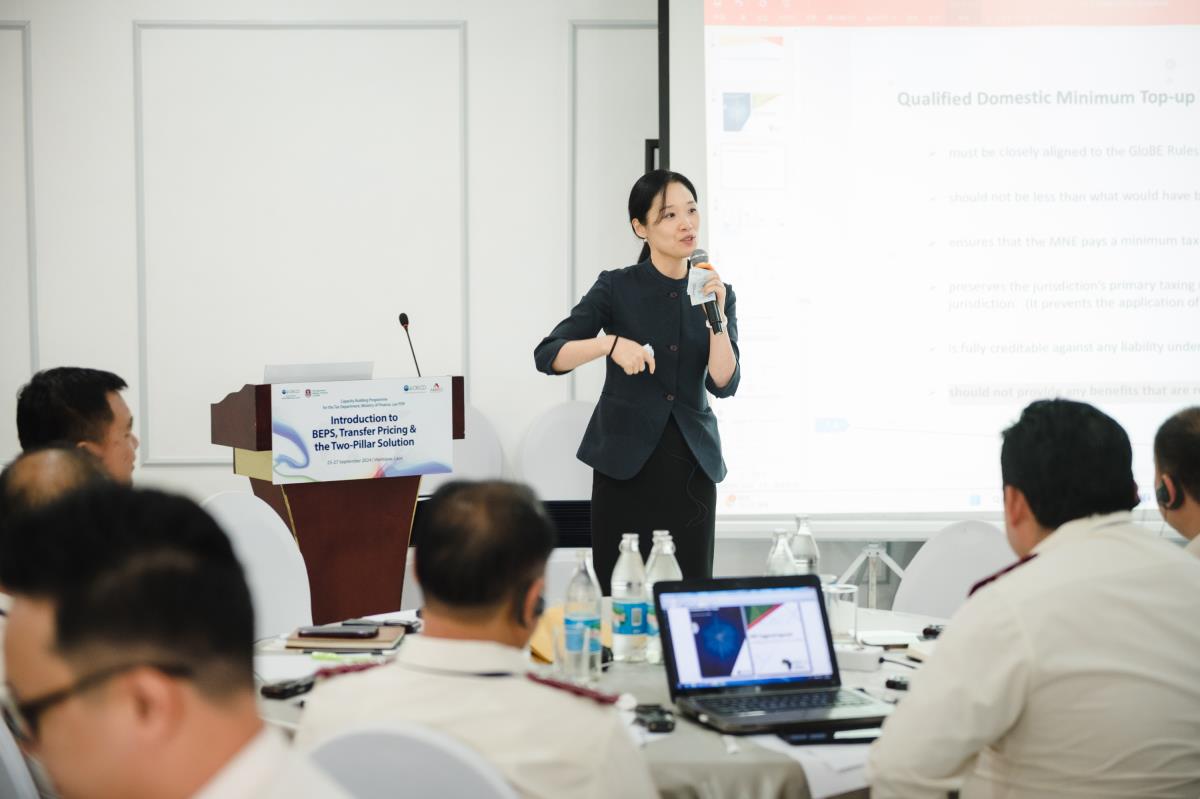
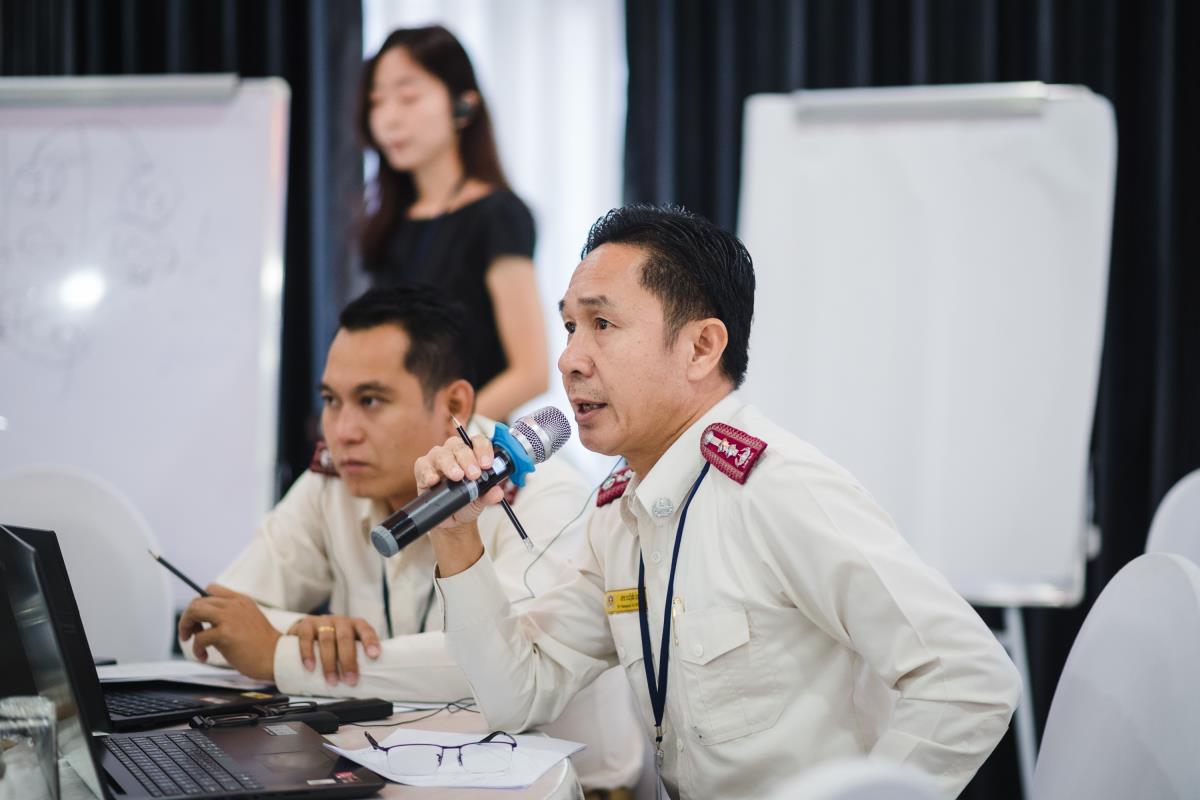
On Day 3, Ms. Kaidi Liu introduced the concept of Two-Pillar Solutions, Amount A&Amount B, and demonstrated the application of Amount B through an example. She then introduced the Qualified Domestic Top-up Tax (QDMTT), the Income Inclusion Rule(IIR) and the Undertaxed Payment Rule(UTPR), and explained the application process of each rule.
Ms. Soojin Lee provided an introduction to the Global Minimum Tax, the Qualified Domestic Top-up Tax (QDMTT), the Subject to Tax Rule (STTR) and tax incentives. She explained the relationship between the QDMTT and the Global Minimum Tax, and how it works and applied. She explained the impact and safe harbor. She showed how to eliminate double taxation and explained granting tax incentives under the compliance with the global minimum tax. She mentioned what tax incentives can be applied to the current situtation of Lao PDR, the possible impacts on the effective tax rate imposed on corporates in Lao PDR, and the effects on investment as points to consider.
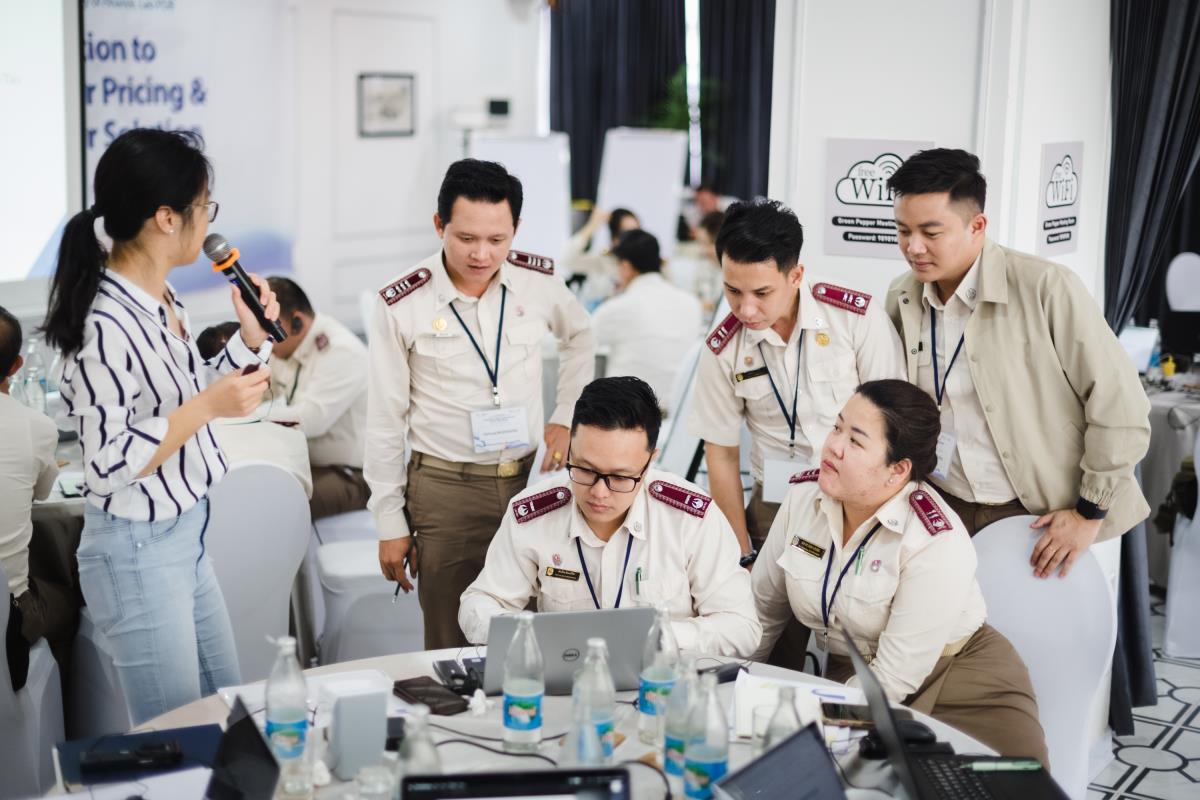
During the three-day workshop, participants showed great interest and actively participated in the lectures. The instructors actively encouraged participants to ask questions and active communication took place. In a follow-up survey, the majority of participants indicated that they were very satisfied with the content and that the program helped them to implement their work in practice. Through the capacity building project and this workshop, participants are expected to gain practical knowledge on the subject, which will be used to outline the tax system and policies in the future. The workshop was also significant in that it laid the groundwork for future collaboration with the Lao Revenue Department and regional organizations such as ARMO.